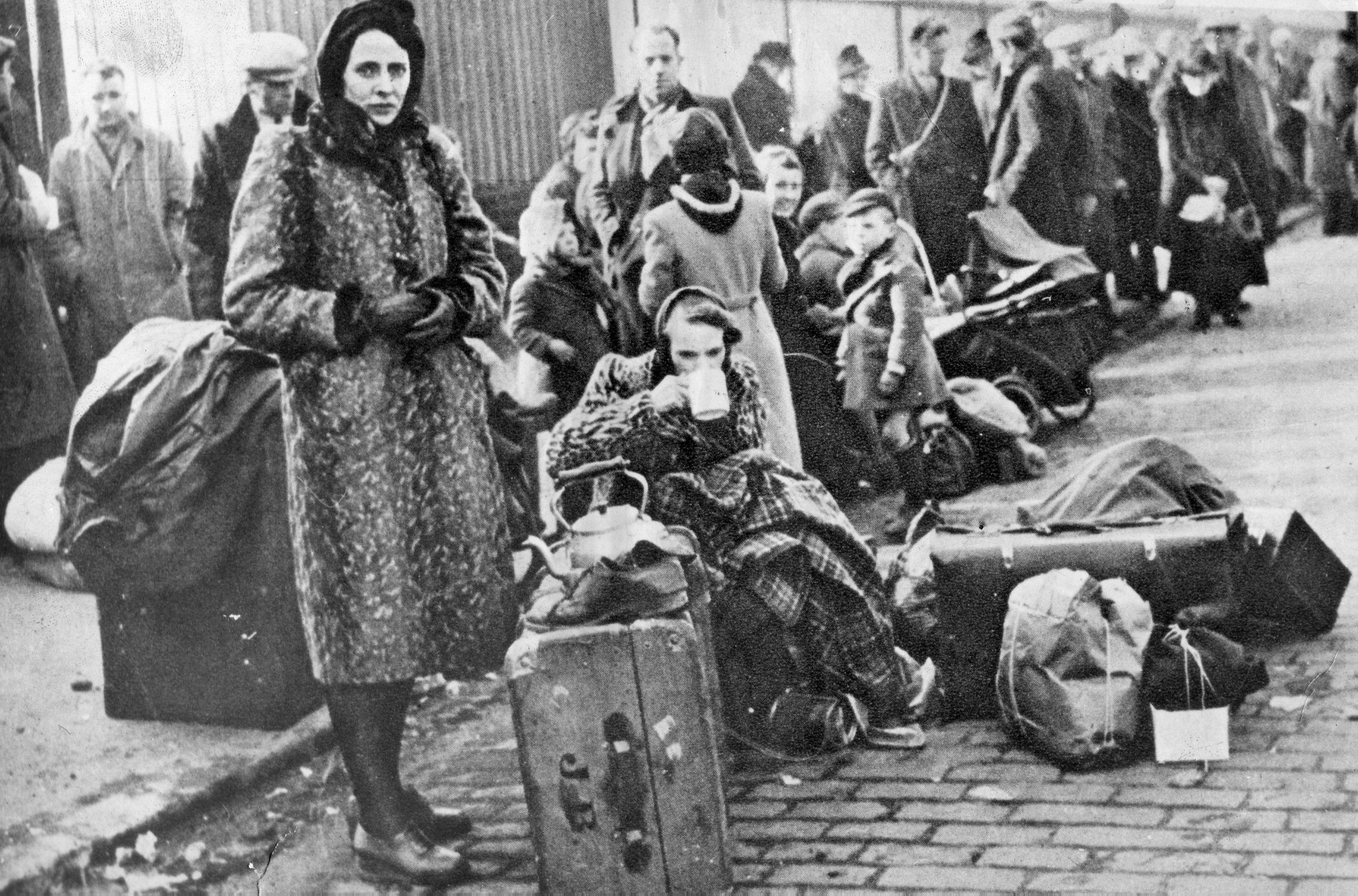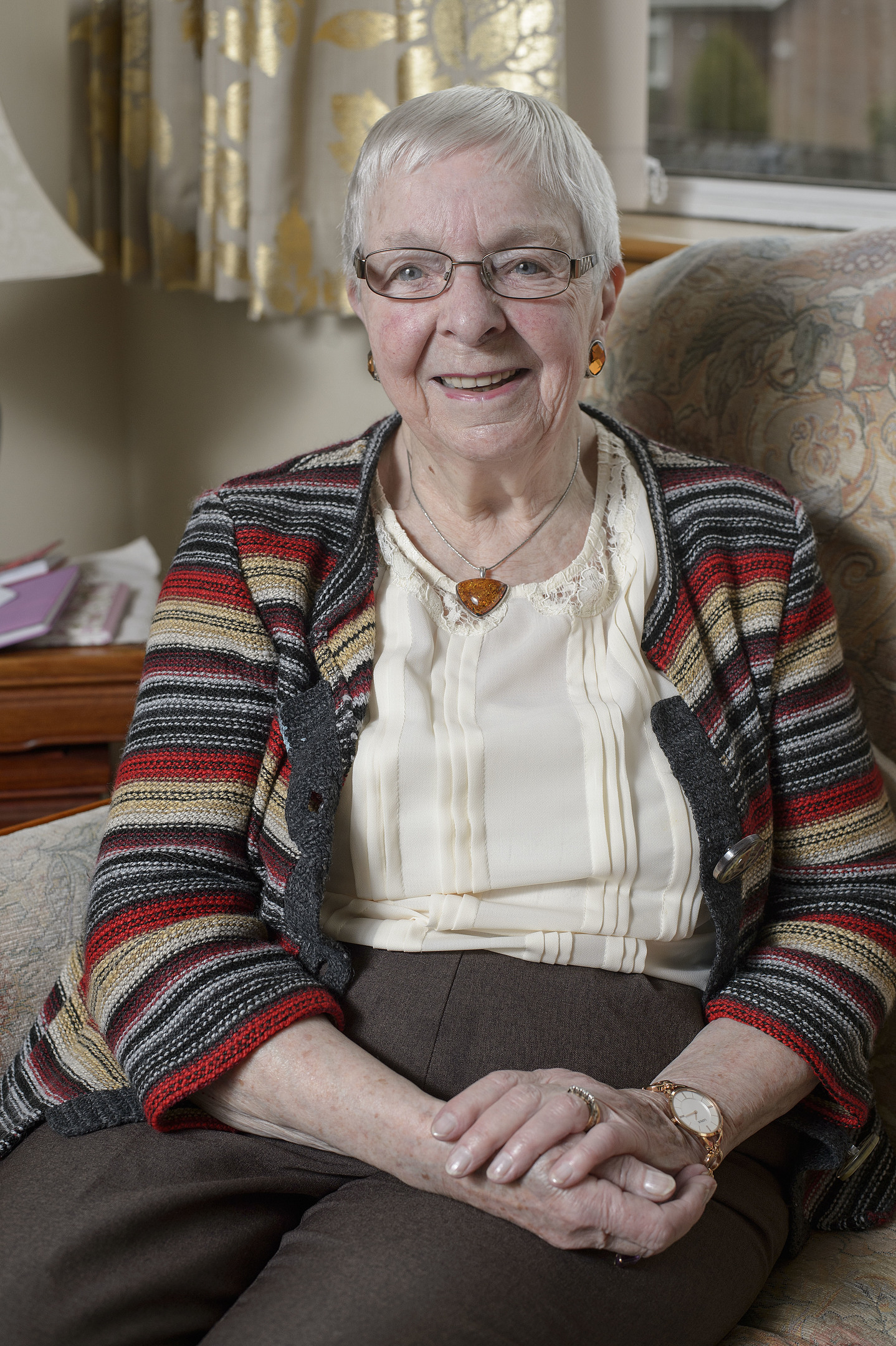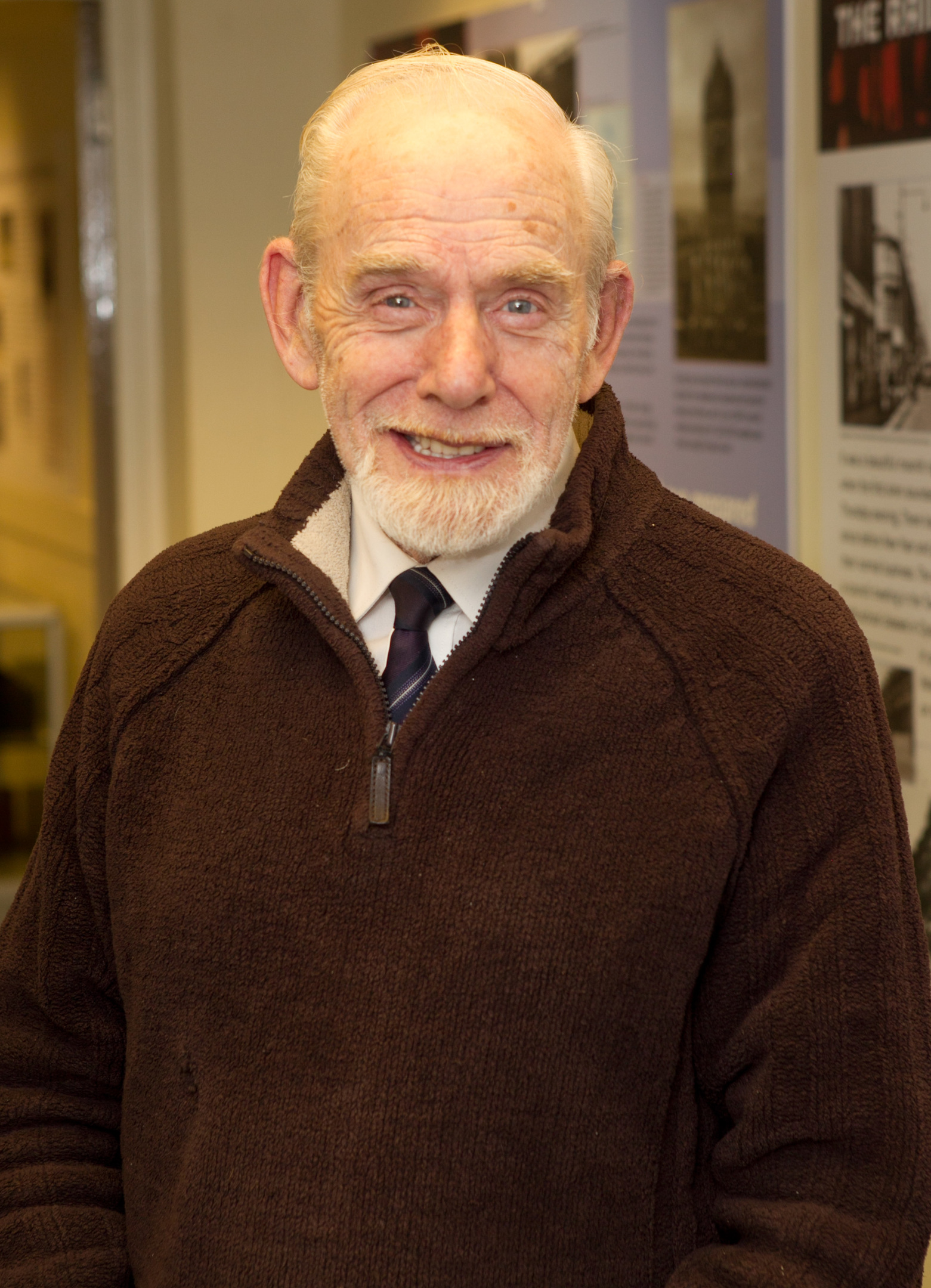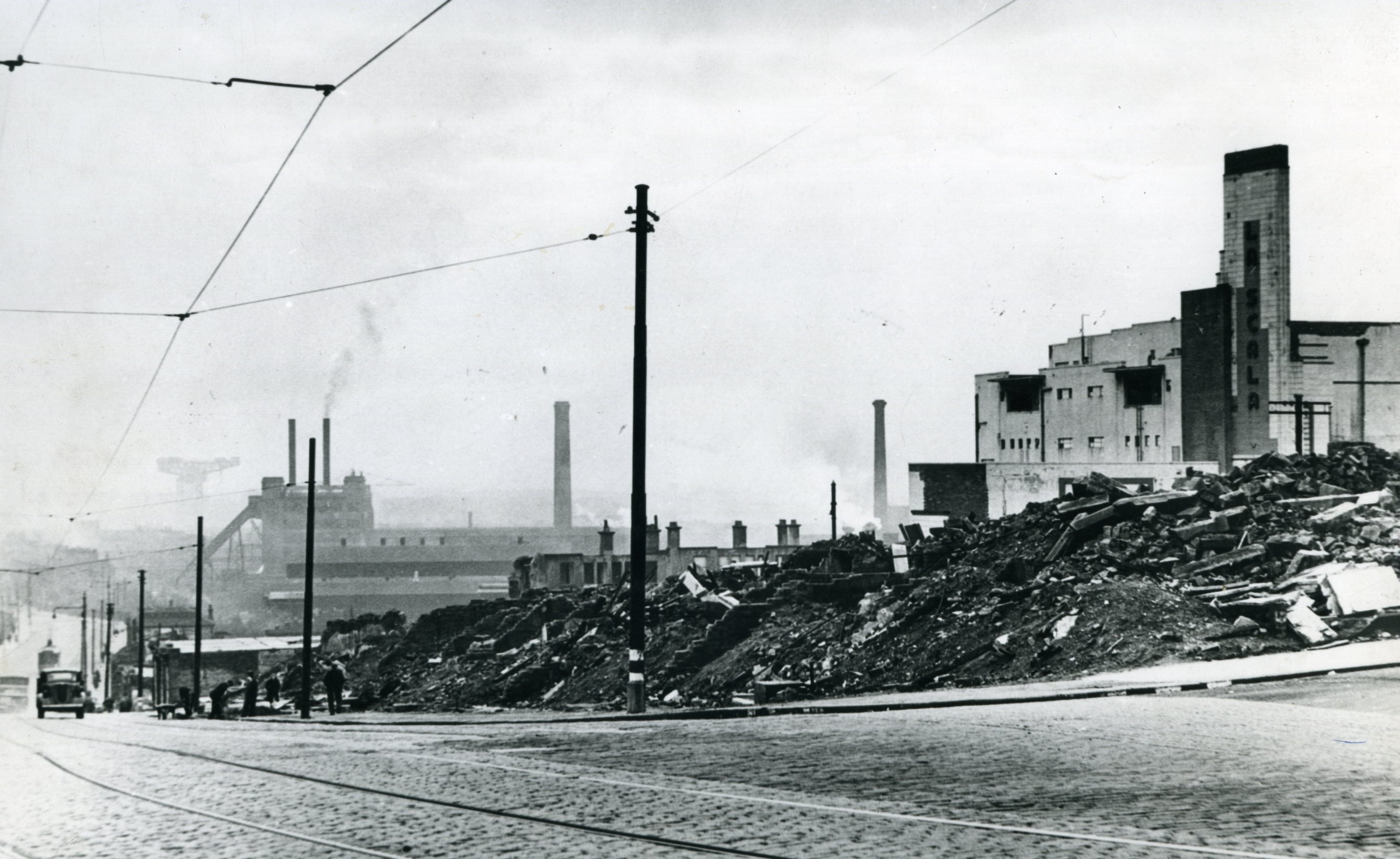
Today marks the 75th anniversary of the Clydebank Blitz – one of the most devastating series of attacks on a British city during the Second World War.
Over the nights of March 13 and 14, 1941, the town was repeatedly bombed in a Luftwaffe attempt to obliterate local war industries and spread terror.
It was Scotland’s biggest civilian disaster of the war.
As a new exhibition recounting the tragedy opens in Clydebank Library, Sunday Post reporter John Paul Breslin speaks to the survivors.
Isa McKenzie
Isa McKenzie was 12 when the Luftwaffe all but destroyed Clydebank.
She and her twin brother Donald were getting ready for bed at home on Bannerman Street when the sirens rang.
The twins and dad Donald, who lived with their mum Rita on the top floor of a tenement building, ran downstairs to a neighbour’s on the ground floor.
They crammed into the woman’s hallway with around 15 other people.
A female air raid warden bravely stood in the entrance to the block and told the terrified residents to brace themselves every time she heard a bomb falling.
“We could hear this ‘slap, slap’ sound and thought it was tiles falling from the roof, but they were incendiary bombs,” she said.
The bombs burned so fiercely they could cut through slate roofs and set buildings alight.
Worse still were the parachute bombs – massive land mines three metres long and almost a metre wide.
At around 2am the residents were eventually evacuated.
They were sent to a nearby air raid shelter but it was still under construction.
Isa remembers how sparks from the bombs were able to fall through gaps in the girders.
Terrified, they moved to another building and hid under a billiard table for the rest of the onslaught.Isa’s mum Rita had been visiting a relative when the bombs started falling and had waited it out inside an air raid shelter.
When it was over the family discovered their home was nothing more than rubble.
Isa, now 87, said: “Everything was in a heap under a big pile of debris. We had nothing. No change of clothes or anything.”
The family spent the second night of bombing back under the billiard table.
Afterwards, as the town lay in ruins, they spent two nights sleeping on a church floor before going to stay in the attic of a pensioner’s cottage.
Looking back Isa is grateful that her family survived.
“We were very fortunate that none of us were hurt,” she said. “But it was terrifying.
“People ask what you felt at the time. You didn’t feel anything.
“You were vacant. It was like living in a nightmare.”
Alistair Grozier
Alistair Grozier’s father thought the sirens were a false alarm on that fateful night.
However, taking no chances, the family ran and hid in a coal cellar in their house in Whin Street that had been converted into an air raid shelter.
Sadly, the attack proved very real.
Alistair, 81, said: “We were sitting in the shelter and could see the bombs coming down and tracer bullets being shot back at the planes.”
Suddenly a bomb burst through the roof, reducing the shelter to rubble.
His dad pulled the family out of the wreckage. Alistair’s mum, who was heavily pregnant, was badly burned.
She had been holding his four-year-old brother Gordon, who also suffered burns.
Injured, the family made it to another air raid shelter and later went to a nearby church where his mum was treated for her burns.
Alistair, who now lives in Renfrew, said: “She was in agony.”
Amazingly, her new baby, Robert, was delivered healthy just a few days later.
The family spent the second night of the bombing at the church before they were evacuated to Coatbridge where they spent the next few years.
Alistair was almost 13 when the family were finally able to move back into their repaired home in Clydebank.
It was a far cry from the last time he’d seen it.
“They took us back past the house after the bombing. It was in flames,” he said. “The whole house had been demolished. It was horrendous.”
Colin Scott
Colin Scott, 80, remembers the blitz spirit that saw people moved to help others – even when they had lost everything.
The lasting memories for him are the places his family moved on to as they tried to escape the danger and rebuild their lives.
Colin’s family home in Gordon Street survived the bombing but the rest of the street was gone, meaning they had to be evacuated anyway.
The enduring impression he has of that time is the generosity shown by strangers.
“There was a lot of kindness and a lot of good people,” he said.
Following the bombing, the family were evacuated to a house in Cardross.
However, they had to be moved on when an unexploded bomb was discovered on the railway line behind that house.
“If it had exploded you would not be talking to me now,” he said.
Colin said the present-day situation with Syrian refugees makes him think back to his family’s life during the war.
He said: “A lot of people say we have enough people to look after in the country and we can’t cope with more but when the chips are down you can.
“We were refugees. People were very kind to us.”
When Colin married his wife Emma 52 years ago he discovered she had her own link to that terrible time.
He said: “She had been named after an aunt who died in the bombing. She was killed in an air raid shelter.”
The Sunday Post’s coverage of the Clydebank Blitz
Although the Clydebank Blitz will never be forgotten it was not, for a long time, given the recognition it deserved.
At the time, the Government was keen to play down news of the disaster as it feared the huge death toll would harm morale.
On March 18, 1941, the Ministry of Home Security declared that “about 500 persons had been killed on the raids in Clydeside”.
However, this figure has long been disputed with many claiming it to be far higher.
The Sunday Post covered the awful events at the time.
A year later, the paper went further when it carried an article on the anniversary of the bombing lamenting the “1,200 Clydebank people” who had died “as the result of the savage two-night blitz”.
The report is said to have angered the wartime authorities.
READ MORE
No dignity, No respect, No honour: Second World War hero died tormented by actions of thug
Captain Stagg is the unsung hero of the Second World War
A 112-year-old Auschwitz survivor has become the world’s oldest man

Enjoy the convenience of having The Sunday Post delivered as a digital ePaper straight to your smartphone, tablet or computer.
Subscribe for only £5.49 a month and enjoy all the benefits of the printed paper as a digital replica.
Subscribe


